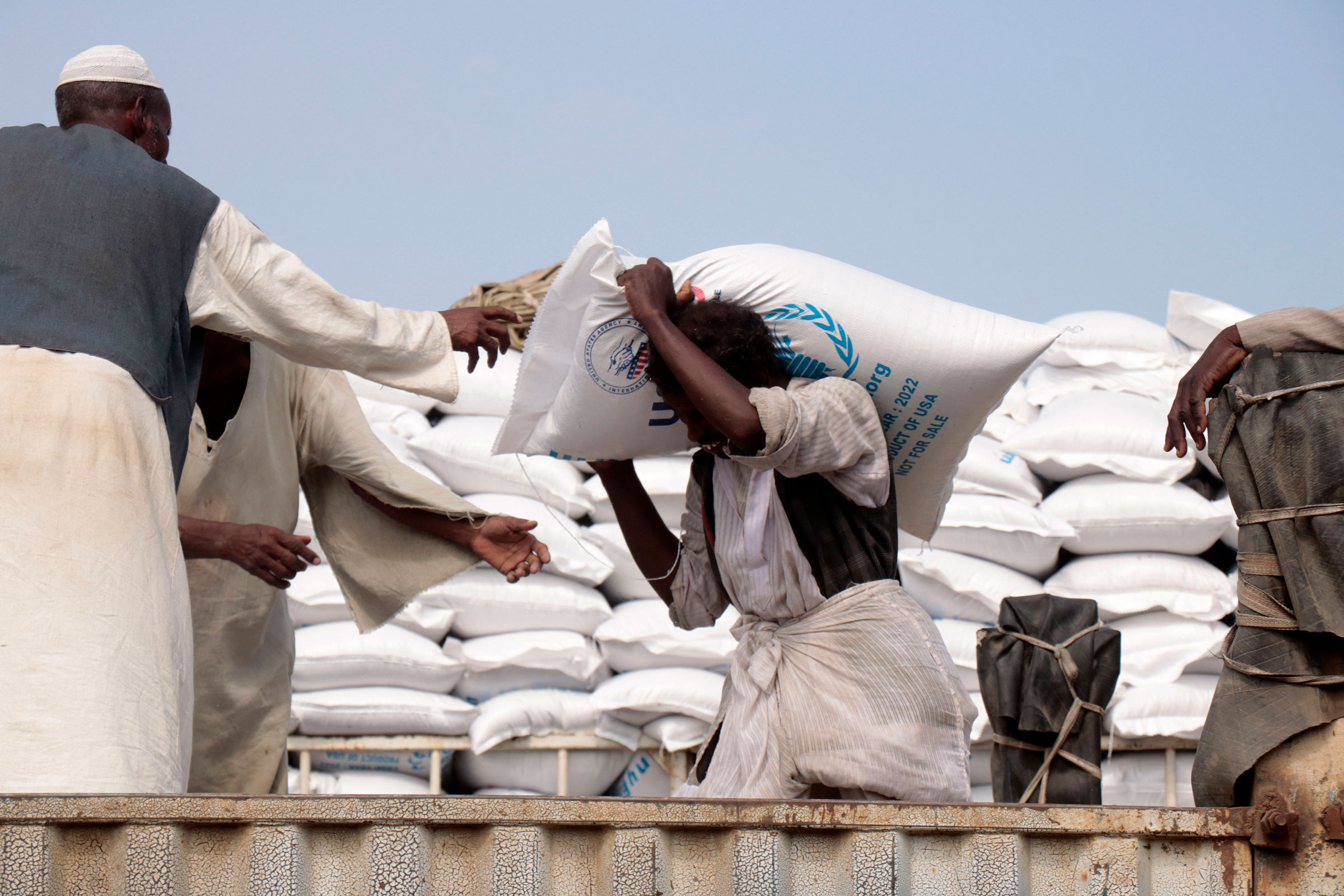
This week, U.S. Secretary Janet Yellen is in Senegal, Zambia, and South Africa on a mission to bolster America’s reputation on the continent. On the heels of December’s White House summit, this is part of an acknowledgement that America has lost ground to China and Russia in the contest to develop Africa. The administration pledged $55 billion in support for health, climate adaption, and development. Not included: addressing poverty directly.
The United Nations committed to ending extreme poverty by the end of this decade, a target certain to be missed. While the percentage of the extreme poor in sub-Saharan Africa is lower than it was in 1990, the absolute number in extreme poverty is 100 million people higher. During a period in which the world has become three times wealthier, hundreds of millions of people remain unable to feed, clothe, or shelter themselves. By 2050, the continent will be home to a quarter of the world, and we’ve failed to ensure they won’t be born into extreme poverty.
Some of the blame for our failure, of course, lies with corrupt local governments, decades of exploitation and underinvestment stretching back to the colonial era, and the catastrophic impact of COVID-19 and the Ukraine-Russia conflict. But much of the blame must rest with the way that the U.S. and its allies have spent trillions of dollars in international aid over many decades. And I personally, as the U.K. Secretary of State, responsible for an overseas aid budget of almost $20 billion a year, was complicit in much of this failure. Whatever we have been doing, it has not made enough difference to poverty in Africa.
China has deftly stepped into this void, propping up local elites and lending hundreds of billions of dollars in sub-Saharan Africa with almost no benefit to the extreme poor, plunging Africa into a debt crisis. In the process, China has built political influence and gained access to vital resources. Russia has gained a foothold in its own way, extending paramilitary support to the most violent leaders on the continent.
Perhaps because of their failures, the West seems to be giving up on poverty alleviation. Britain has cut a third from its international aid budget, and much more from its poverty programs in Africa. European governments are spending an increasing proportion of their aid on problems closer to home, such as Ukraine. Many U.S. private foundations increasingly focus on health initiatives such as vaccination, vitamins, and bed-nets, which have dramatically improved infant mortality and life expectancy but cannot end poverty. For her part, Secretary Yellen is spending her trip visiting electrification efforts and business incubators.
But there is an option hiding in plain sight: simply giving the extreme poor cash. This is not a comfortable idea—not least because it challenges the way that we have done business for decades. But it’s been modeled in dozens of countries, and more than three hundred academic papers have demonstrated the extraordinary positive impact of cash. Rather than building dependency, $500 given directly to a family in poverty can have a literally life-transforming effect. The instant improvement in housing, livestock, nutrition, sanitation, electrification, kids in school and business income recorded in cash programs in rural Rwanda is astonishing. Or look to China, whose drive to eliminate poverty at home has most recently included direct cash transfers.
Cash works because it does not require outsiders to guess what a community needs; they decide for themselves. And it is very much an idea for the moment—it is only in the last decade that expansion of mobile networks and mobile money technology in Africa has allowed cash to be delivered safely and efficiently directly into the pockets of the world’s poorest, without the money being absorbed along the way by corrupt officials or layers of donor bureaucracy.
A well-funded cash program would be a powerful response to China and Russia. The U.S. could use much of the $50 billion it spends annually on aid to lift millions from extreme poverty. A large-scale cash program would demonstrate key values: it would be entirely transparent and measurable, it would support the people not elites, it would give agency and dignity to the poorest people in the world, and it would address the abiding shame of persistent poverty.
Giving cash cannot, of course, do everything. If your target is malaria, bed nets are often a better investment. Good education still requires strong governments and public investment. But nothing is as easily scalable or replicable than cash—or is more suitable for large Western bureaucracies, which struggle to adjust flexibly to local contexts. In the worst case scenario, every transfer—delivered directly to a phone— brings immediate and tangible benefit to an individual in poverty. In the best case scenario it creates a sustained economic stimulus, transforming the broader economy.
The likely outcome, somewhere in between, would be far better than we have achieved almost anywhere to date. In the past two decades, $19 billion has been spent on international development in Malawi alone yet more Malawians live in extreme poverty. A fifth of that amount, delivered in cash, could make a substantial difference. Western countries, many with histories of slavery or colonization, have spent too long patronizingly lecturing others on how to improve themselves. Giving cash would be the most radical gesture of trust and respect. And we might even win back some badly needed credibility and legitimacy in Africa and beyond.
More Must-Reads from TIME
- How Donald Trump Won
- The Best Inventions of 2024
- Why Sleep Is the Key to Living Longer
- Robert Zemeckis Just Wants to Move You
- How to Break 8 Toxic Communication Habits
- Nicola Coughlan Bet on Herself—And Won
- Why Vinegar Is So Good for You
- Meet TIME's Newest Class of Next Generation Leaders
Contact us at letters@time.com